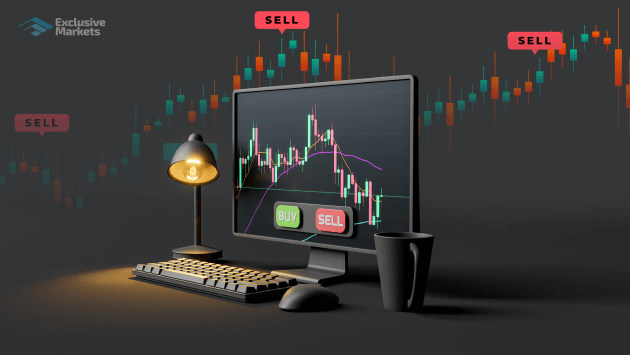
Forex Trading for Dummies: A Beginner’s Guide
Forex trading, or foreign exchange trading, is the act of buying and selling currencies in the foreign exchange market with the aim of making a profit. This market is one of the largest and most liquid financial markets in the world. Despite its popularity, many newcomers find forex trading intimidating. That’s why this guide is here to simplify concepts and provide practical knowledge for those just starting out. To get started, it’s essential to find a reliable trading platform, and you can check out some of the forex trading for dummies Best Uzbek Brokers for your needs.
Understanding the Basics of Forex Trading
At its core, forex trading involves trading currency pairs. A currency pair consists of two currencies, the base currency and the quote currency. For example, in the pair EUR/USD, the Euro (EUR) is the base currency, while the US Dollar (USD) is the quote currency. When you trade a currency pair, you are essentially betting whether the price of the base currency will rise or fall against the quote currency.
Key Terms in Forex Trading
Before diving deeper, it’s important to familiarize yourself with some key terms:
- Pip: Short for “percentage in point,” a pip is the smallest price move that a given exchange rate can make based on market convention. For most pairs, a pip is a change of 0.0001.
- Leverage: Leverage gives you the ability to control a larger position than your initial capital would allow. For example, with 100:1 leverage, you can control $100,000 with just $1,000 in your trading account.
- Spread: The spread is the difference between the buying (ask) price and the selling (bid) price of a currency pair. Traders must pay this cost when entering a trade.
- Margin: The amount of capital required to open and maintain a leveraged position.
How Forex Trading Works
Forex trading occurs in a decentralized market, meaning that trades happen over-the-counter through brokers rather than on a centralized exchange. This allows for continuous trading—24 hours a day, 5 days a week—making forex accessible to traders around the world.
Markets are influenced by various factors, including economic indicators, geopolitical events, and market sentiment. Economic reports, like job reports or inflation rates, can cause significant movements. For instance, if the U.S. announces a good jobs report, the USD may strengthen against other currencies.
Choosing a Forex Broker
Choosing the right forex broker is crucial for your trading success. Factors to consider include:

- Regulation: Ensure that the broker is regulated by a recognized financial authority to ensure the safety of your funds.
- Trading Platform: A good trading platform should be user-friendly and offer a wide array of tools and features for analysis.
- Fees and Spreads: Compare the spreads and any trading fees charged by different brokers. Lower costs generally increase profitability.
- Customer Support: Reliable customer support can be invaluable, especially when you need assistance with your account or trades.
Developing a Forex Trading Strategy
Before you begin trading, it’s important to develop a trading strategy. A solid strategy should include:
- Market Analysis: Utilize both technical and fundamental analysis to make informed decisions. Technical analysis relies on historical price data, while fundamental analysis considers economic indicators.
- Risk Management: Decide how much of your capital you are willing to risk on a single trade. A common rule is to risk no more than 1-2% of your total trading account on each trade.
- Trade Setup: Identify potential trade setups that meet your criteria in terms of entry and exit points.
The Importance of Practice and Demo Accounts
Before risking real money, consider practicing on a demo account offered by many brokers. A demo account allows you to trade with virtual funds, helping you to familiarize yourself with the trading platform and test your strategy without any financial risk. Use this time to understand market movements and refine your skills.
Common Mistakes to Avoid
Many new traders fall into common traps that can erode their trading capital. Some of these include:
- Over-leveraging: Using too much leverage can amplify both gains and losses. It’s important to use leverage responsibly.
- Lack of a Trading Plan: Trading without a plan can lead to emotional decisions. Always stick to your strategy.
- Ignoring Economic News: Major economic releases can cause significant volatility. It’s important to stay informed about relevant news events.
Final Thoughts on Forex Trading
Forex trading can provide opportunities for profit, but it also comes with risks. Education and practice are essential for success. As you begin your journey, remember that patience and discipline are key to becoming a successful trader.
The world of forex is vast and intricate, but with dedication and the right resources, you can navigate it successfully. Equip yourself with knowledge, keep a keen eye on the market, and happy trading!
